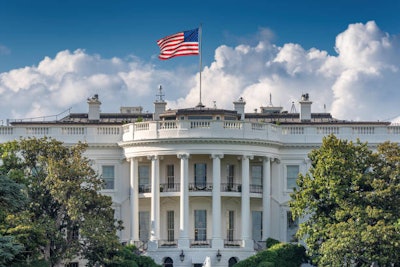P
The 40-page request was sent to congressional leaders with a letter from Office of Management and Budget Director Russell Vought addressed to Senate Appropriations Committee Chair Susan Collins (R-Maine).
Overall, the proposal contains a 23% cut ($163 billion) in discretionary funding and a 13% increase in military spending when including the $150 billion Republicans are considering in a separate bill. The White House budget comes as the Republican-led Congress works to craft legislation for Trump's priorities: tax cuts, increased spending on immigration enforcement and the military, spending cuts in other areas, and a debt limit increase.
Association of Public and Land-grant Universities (APLU) President Dr. Mark Becker released a statement calling the cuts "of an astonishing magnitude that would decimate U.S. innovation, productivity, and national security." Becker said that "federal student aid is critical to increasing college affordability, timely graduation, and building the workforce our nation needs to compete and thrive." He noted that thanks to public universities controlling costs and increased federal aid, "net tuition and fees for in-state students is down 40 percent after inflation over the last decade. Eliminating and slashing federal student aid threatens to reverse this critical progress."
Becker warned that "massive cuts to federally funded research would put U.S. global leadership in innovation in retreat and embolden our global competitors." He highlighted specific concerns, including a 40% cut to NIH research that "will delay or deny lifesaving treatments for patients," halving NSF-funded research that would "sideline researchers racing toward new discoveries in frontier fields," and reducing USDA's National Institute of Food and Agriculture funding by a third, which would "devastate U.S. agriculture innovation and productivity."
American Federation of Teachers (AFT) President Randi Weingarten also criticized the proposal, stating that Trump's "skinny budget cuts much of what helps poor, working-class and middle-class Americans, seemingly to pay for tax cuts for the rich." Weingarten expressed concern about the dismantling of the Department of Education and the $5.4 billion cut to K-12 programs, along with slashed student aid. She noted that healthcare programs would be cut by more than a quarter and labor by more than one-third.
"Voters didn't expect to lose their reading or after-school programs for a tax cut for the ultra wealthy," Weingarten stated. "We won't stop fighting for America's children, and we hope members of Congress will join us in opposing this proposal, which is a blatant attack on all of us."
Trump's budget proposes cutting the National Institutes of Health by $18 billion compared with 2025 levels, the Low Income Home Energy Assistance Program (LIHEAP) by $4 billion, and the Centers for Disease Control and Prevention by $3.6 billion. The proposal also calls for various cuts to clean energy funding, education funding, scientific research, and international aid.
Meanwhile, the budget proposes funding increases for Trump priorities, including a $43.8 billion boost to the Department of Homeland Security, $113.3 billion for the Defense Department, and $500 million for Health and Human Services Secretary Robert F. Kennedy Jr.'s "MAHA" — "make America healthy again" — priorities focused on nutrition and exercise.
House Speaker Mike Johnson praised the budget as "a bold blueprint that reflects the values of hardworking Americans and the commitment to American strength and prosperity." In contrast, Senate Minority Leader Chuck Schumer (D-N.Y.) vowed that Democrats will "fight this heartless budget with everything we've got," calling it "an all out assault on hardworking Americans."
Senator Collins responded in a statement calling the request "simply one step in the annual budget process."
"Ultimately, it is Congress that holds the power of the purse," she added. Collins expressed "serious objections" to various provisions including cuts to programs like "LIHEAP, TRIO [an Education Department program], and those that support biomedical research."















